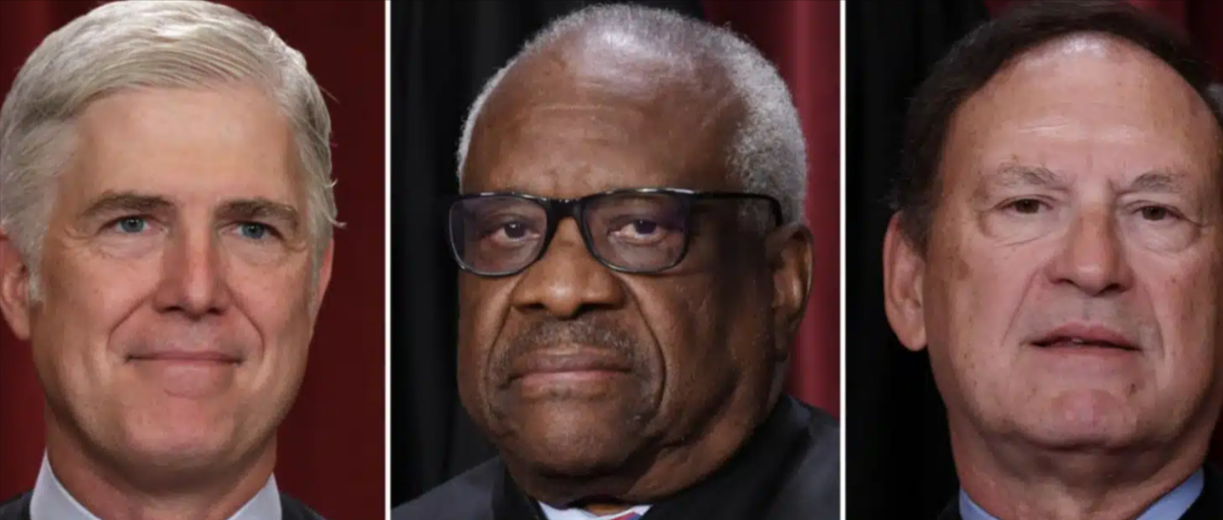SCOTUS Passes On Chance To Overturn Hawaii Second Amendment Ruling

The U.S. Supreme Court has declined to intervene in a case where Hawaii’s highest court issued a ruling seemingly at odds with established Second Amendment interpretations.
Hawaii’s Supreme Court recently dismissed major precedents set by the nation’s highest court, stating that the "spirit of Aloha clashes with a federally mandated lifestyle that lets citizens walk around with deadly weapons during day-to-day activities."
"In Hawaii, there is no state constitutional right to carry a firearm in public," the state’s high court declared in its decision.
Justice Clarence Thomas, in a statement joined by Justice Samuel Alito, acknowledged that rectifying the state court’s ruling "must await another day."
While Thomas, Alito, and Neil Gorsuch expressed their disagreement with Hawaii’s decision, they noted that they could not take up the case at this time. They explained that the defendant, Christopher Wilson, has yet to undergo trial for other allegations. Wilson was arrested in 2017 for trespassing on private property while carrying an unlicensed firearm.
"Wilson moved to dismiss only some of his charges, most notably leaving for trial a trespassing charge on which his Second Amendment defense has no bearing," Thomas wrote in a statement co-signed by Alito. "He thus seeks review of an interlocutory order over which we may not have jurisdiction."
Despite this, Thomas pointed out that if Hawaii’s highest court had adhered to the Supreme Court’s Second Amendment framework, it would have deemed the state’s firearm licensing regulations "unconstitutional and supported the dismissal of Wilson’s public-carry charges."
"I agree with the Court’s decision to deny certiorari in this posture," Thomas wrote. "In an appropriate case, however, we should make clear that Americans are always free to invoke the Second Amendment as a defense against unconstitutional firearms-licensing schemes."
Gorsuch, in a separate opinion, suggested that the issue might return for review if Hawaii’s judiciary does not modify its stance as the case moves forward.
In October, the Supreme Court also rejected a challenge to a federal law prohibiting firearm possession by individuals under domestic violence restraining orders.
The ruling came with an 8-1 vote, with Justice Clarence Thomas as the sole dissenter.
"The court holds that when an individual has been found by a court to pose a credible threat to the physical safety of another, that individual may be temporarily disarmed consistent with the Second Amendment," reported SCOTUS Blog.
Chief Justice John Roberts emphasized that "since the founding, our Nation’s firearm laws have included provisions preventing individuals who threaten physical harm to others from misusing firearms. As applied to the facts of this case, Section 922(g)(8) fits comfortably within this tradition."
Addressing lower courts’ interpretations of the Supreme Court’s decision in New York State Rifle & Pistol Association v. Bruen, Roberts wrote, "Some courts have misunderstood the methodology of our recent Second Amendment cases. These precedents were not meant to suggest a law trapped in amber."
Otherwise, he explained, the Second Amendment would only protect "muskets and sabers."
"Why and how the regulation burdens the right are central to this inquiry. For example, if laws at the founding regulated firearm use to address particular problems, that will be a strong indicator that contemporary laws imposing similar restrictions for similar reasons fall within a permissible category of regulations."
In the same month, the Supreme Court made headlines by unanimously rejecting a legal challenge to the Food and Drug Administration’s regulation of an abortion-related drug.
The justices ruled 9-0 that the challengers lacked standing to contest the FDA’s approval process for the abortion medication mifepristone, marking a legal victory for the Biden administration and supporters of abortion rights.